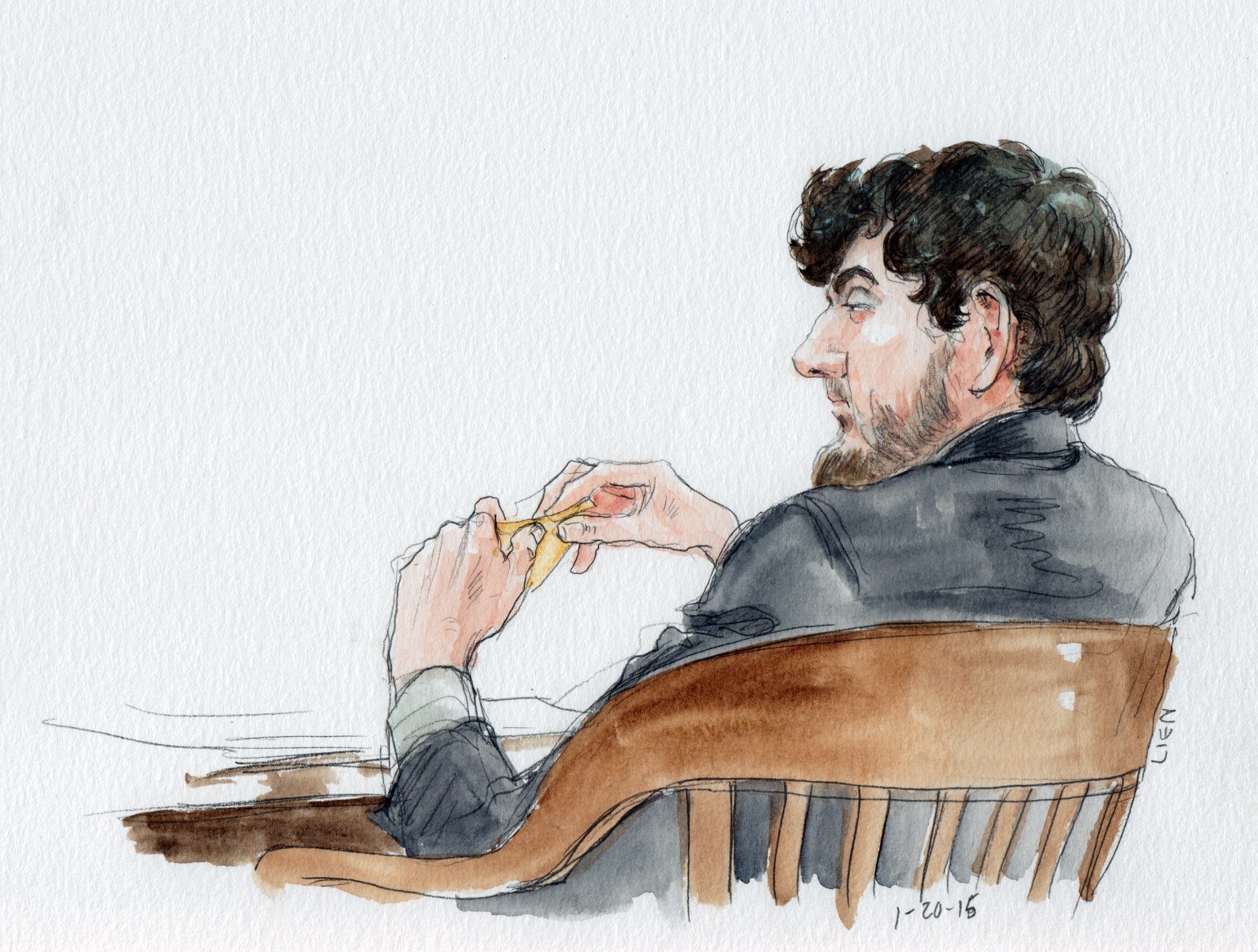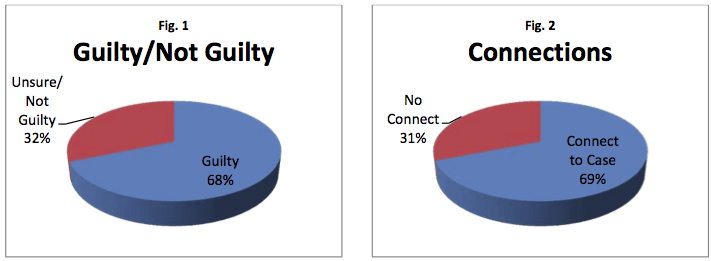
The legal proceedings in the case of alleged Boston Marathon bomber Dzhokhar Tsarnaev took an interesting turn on Thursday, Jan 22. Tsarnaev’s defense team filed its third motion to relocate the trial out of Boston, supporting its request with a memo full of data produced from the questionnaires issued to all 1,373 potential jurors. The memo was broadcasted throughout social media and subsequently sealed by Judge George O’Toole. But was social media itself to blame?
Contained in the memo were quotes attributed to jurors, identified only by their randomly assigned numbers, and statistical data about how they feel about the case in general. A solid majority, 68 percent, have already deemed Tsarnaev guilty in their minds despite not seeing a single shred of evidence, or hearing a single piece of testimony, in a court of law.
Sixty-nine percent said they’re directly connected to, or have “expressed allegiance” to, the people and places involved in the bombings. And an overwhelming 85 percent already believe Tsarnaev is guilty, or they have identified some kind of direct connection, or both.
“This is an excellent defense team,” Northeastern University School of Law Professor Daniel Medwed told BostInno. “Sealing decisions are made by the court and not uncommon to seal to protect identity of jurors. It appears as though the defense is making a compelling case that it will be hard to find an impartial jury given how many prospective jurors appear to have preformed opinions about the case.”
But it seemed as though Judge O’Toole sealed the memo only after it was dispatched over Twitter and Facebook, prompting the question as to whether or not Tsarnaev will, in fact, receive a fair trial by his peers and/or if the presiding judge will end up relocating the trial after all.

It turns out, social media might actually be one of the case’s most significant assets.
Gerald Kane, a guest editor of social business at the MIT Sloan Management Review and an associate professor of information systems at Boston College Carroll School of Management, told BostInno he was following the 2013 hunt for Tsarnaev via social media, not the traditional media which, at times, was strikingly inaccurate in its reporting.
Because of this, he’d have no problem putting aside all of the accounts, opinions and falsities floating around in the Twittersphere.
“One might even argue that social media may help to create impartial trials, as people learn to be more skeptical about what they hear on TV and on social and learn to be critical consumers of information,” Kane told BostInno. “Most everyone who is a reasonably active social media person knows you need to be skeptical about information presented on social because its reliability is always questionable. Thus, people may be actually more equipped these days to set aside something they may have heard in order to get to the ‘truth.'”
Though the memo displayed some bias on the part of the jury pool, it’s in part because of social media that the trial is unlikely to be relocated.
A 2013 survey conducted by Pew Research Center estimates some 72 percent of American adults use social media, and about 18 percent use Twitter.
Because social media is really only constrained by the strength of one’s Internet connection, its reach can even extend into some places thought of as more remote.
“I’m not sure social is relevant to the decision to relocate,” added Kane. “Anyone, anywhere has access to this information. Why would it matter if it’s in Boston or somewhere else?”
Judge O’Toole denied the first two motions by the defense to relocate the trial, as well as the defense’s multiple attempts to delay the trial. None of the filings, though, were accompanied by any supportive data as was seen Thursday. It will be interesting to see how much, if at all, the judge takes impartiality of the prospective jurors into account.
The trial proper was expected to begin on Monday, Jan. 26., but the slow pace of bringing potential jurors into the courtroom for further questioning is likely to delay the start date.
